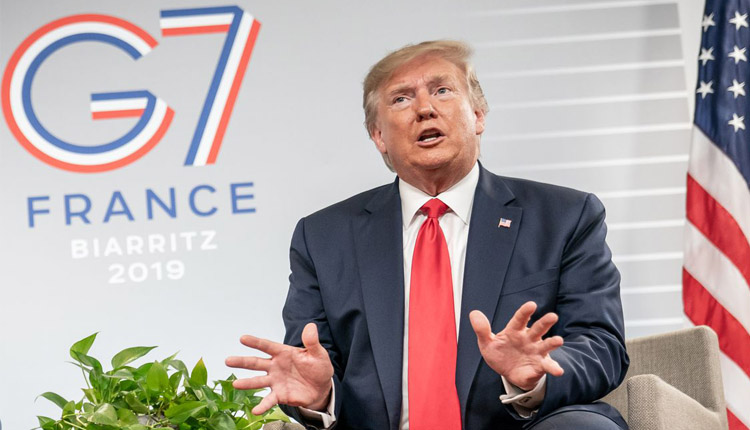U.S. President Donald Trump will meet with representatives of at least a dozen nations, including Germany, France, Italy, and Denmark, at the North Atlantic Treaty Organisation’s (NATO) 70th anniversary meeting in London next week.
Senior Trump administration officials told reporters on Friday that the American president is expected to discuss the ongoing challenges that NATO and the international community face from China and Russia, two nations that have become inextricably tangled up in Trump’s domestic political battles.
“There are continuing challenges that NATO needs to face, China above all,” one official said in a conference call.
The Trump administration also expects that NATO’s relationship with Russia “will certainly come up,” an official said.
“Russia has shown a consistent disregard for the sovereignty and territorial integrity of its neighbors. Certainly that’s something that will be discussed at the leader summit,” the official said.
The officials sketched a rough outline of Trump’s schedule for meetings with world leaders over the course of the event, which takes place Tuesday and Wednesday, including:
Tuesday
- A working breakfast with NATO’s Secretary General Jens Stoltenberg
- A bilateral meeting with French President Emmanuel Macron
- A NATO leaders’ reception in the evening, hosted by Queen Elizabeth II
Wednesday
- A NATO leaders’ plenary session
- A bilateral meeting with German Chancellor Angela Merkel
- A working lunch with representatives of Estonia, Greece, Latvia, Poland, Romania, Lithuania, Bulgaria, and the United Kingdom
- A meeting with Denmark’s Prime Minister Mette Frederikson and Italian counterpart Giuseppe Conte
The officials noted that the administration is working to lock down additional bilateral meetings that may be revealed at a later date.
The NATO meeting is set to take place in London just days after a man was killed near London Bridge in an incident that authorities there are treating as a terrorist attack.
White House officials also warned of China’s pursuit of greater global influence and highlighted the risks of 5G technology.
The U.S. will “absolutely” discuss 5G at the NATO meeting, an official said.
“This has been a major push of ours. We are absolutely going to insist that our NATO allies use trusted and reliable partners, providers in their 5G networks.”
“This is not something where they want to allow the Chinese Communist Party to be able to siphon off their data or entry into their networks at all. So this is a very, very high priority for us, and the president is going to reiterate that message,” the official said.
U.S. officials have long complained that Chinese intellectual property theft has cost the economy billions of dollars in revenue and thousands of jobs and that it threatens national security.
Beijing maintains that it does not engage in intellectual property theft. The issue is central to the repeated attempts between the two economic superpowers to reach a trade deal that will also tackle the U.S. trade deficit with China and so-called forced technology transfers. The first “phase” of a deal was revealed in principle in mid-October, but it has yet to be formalised on paper more than a month later.
Last year, the Pentagon suspended sales of Huawei and ZTE mobile phones and modems on U.S. military bases worldwide due to potential security risks.
“These devices may pose an unacceptable risk to the department’s personnel and mission,” wrote Pentagon’s spokesman Lt. Col. Dave Eastburn in a previous statement to CNBC.
Since 2012, the U.S. government has warned against using Huawei equipment and component parts. The firm has been effectively banned since that time, and Trump’s executive order later in May made the recommendations official.
“U.S. government systems should not include Huawei or ZTE equipment,” a 2012 report by the Permanent Select Committee on Intelligence said. “Similarly, government contractors, particularly those working on contracts for sensitive U.S. system, should exclude ZTE or Huawei equipment from their systems.”
Source: CNBC
